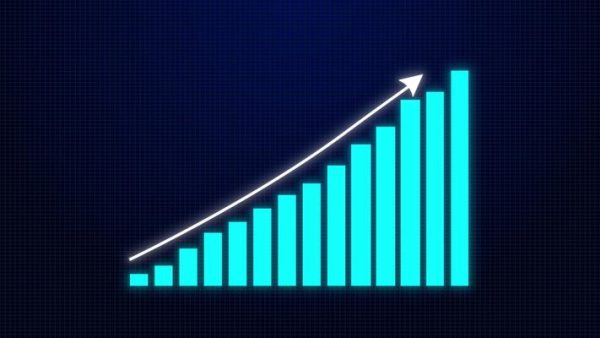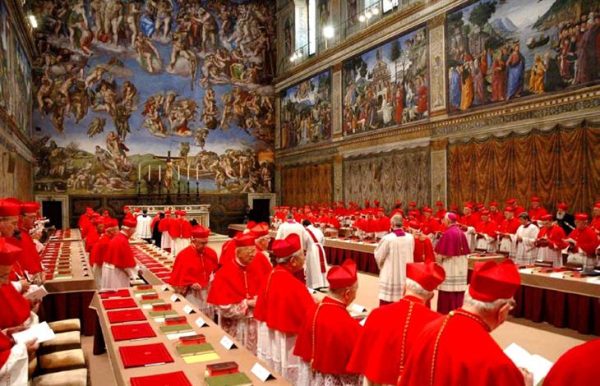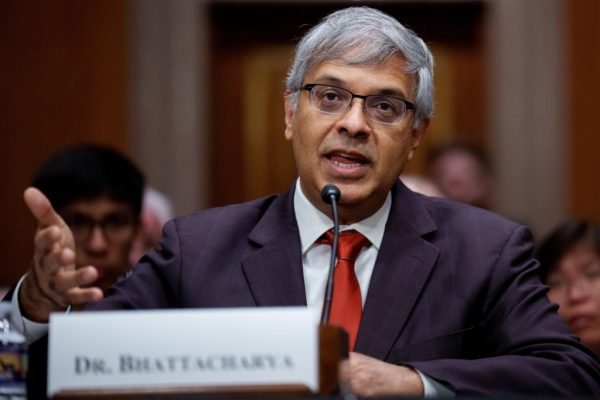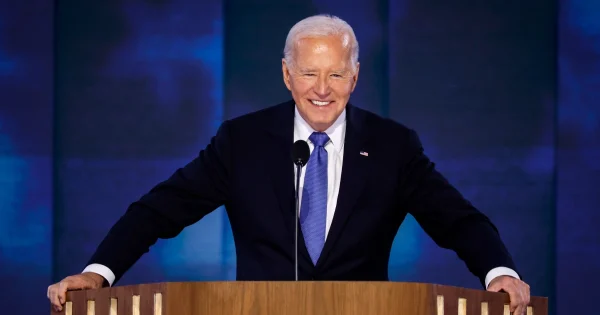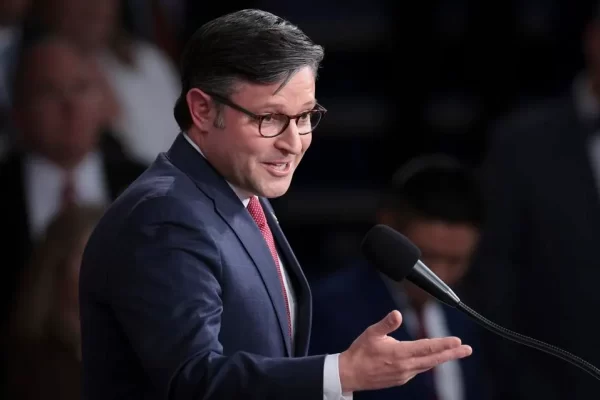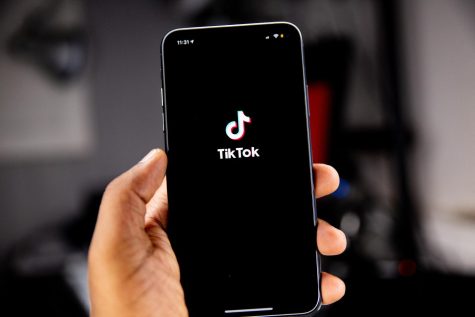Time’s Up For Lies
Time’s Up protest at the Golden Globes continues 2017’s fight against sexual harassment

Actress Kadian Noble sues Harvey Weinstein for sexual harassment in a conference in New York on Nov. 28, 2017.
Celebrities attending the 75th annual Golden Globes shook up both support and criticism after wearing black in support of the Time’s Up movement, a call to raise awareness for and end sexual assault.
The protest was majorly in response to the trending sexual violence allegations in 2017 and continuing into 2018. Many celebrities emphasized the cause in their acceptance speeches and by wearing Time’s Up pins on their suits and dresses. Well-known supporters include Dwayne Johnson, Emma Stone, Kerry Washington, and Mariah Carey, among others.
“The media has been focusing a lot on sexual assault,” sophomore Anjali Gonuguntla said. “I think that [celebrities attending the Golden Globes] brought something necessary and that this was a great way to kick off Time’s Up.”
This movement may be traced back to Oct. 5, 2017, when several women, most famously Ashley Judd and Rose McGowan, disclosed to the media their experiences with Harvey Weinstein, co-owner of the multimillion dollar film company The Weinstein Company. Weinstein was accused of making aggressive sexual advancements on both the two actresses as well as many other women. The New York Times article set off an explosion of accusations from dozens of well-known celebrities who claimed to have been harassed by Weinstein. Celebrities uninvolved also spoke out in support of the women and pushed the issue further and further into the center of attention.
“I believe the mass majority of celebrities and businessmen and anybody [else] in the country don’t do this,” sophomore Athulya Nagarajan said. “I think it’s a very small minority, and a slightly larger but far more vocal minority that says because this high minority of people is carrying out rapes and sexual assaults, all of a sudden the entirety of the United States is at fault for having a rape culture.”
Soon the discussion broadened from the Weinstein case to sexual violence and its downpayment in the media as a rife issue. Thousands of people began sharing their personal experiences with the hashtag #MeToo to spread awareness of the believed prevalence of sexual assault, opening the door for other celebrities to be among the accused. Notable people with their careers threatened include Kevin Spacey, Stan Lee, and James Franco. Some believe it is justice; others say it is a dangerous overreaction.
“It’s not overreacting if it gets what needs to be done done. If the general public’s overreaction will stop sexual assault, then it’s fine,” Gonuguntla said. “We seem to be making a lot of progress.”
The cause of this movement can be taken even further back to the infamous incident during the 2016 presidential election, when a private conversation between now President Donald Trump and radio host Billy Bush was leaked. The tape, captured in 2005, included a vulgar comment from President Trump which struck many as being sexist and offensive.
“It seems to me like they purposely waited for a person who they didn’t like in a position of power so they could go out and say everybody in this position of power is wrong,” Nagarajan said.
However, the origin of this recent movement may be traced back even further to 2014, in the case of Kesha v. Dr. Luke. The recurring hit artist came out with the history of his sexual abuse towards her on multiple occasions since she signed with him in 2005. Kesha’s legal team attempted to prove several instances of contract breach to cut their ties, but she was denied the ability to record outside of her record label, Sony Music.
“[People in power] have a lot of intimidation over less powerful people. It’s present because they feel like they can take it,” Gonuguntla said. “They feel like the whole world is theirs, and that whatever they want they can either buy or they can just take.”
#FreeKesha became a cry for women’s rights and liberation against an oppressive power. Despite the years the legal battle spanned, when Kesha’s new album was released on Aug. 11, 2017, several of its songs quickly become Billboard hits. There is evidence to suggest a continued fight for termination of contract with producer Dr. Luke.
“[Sexual assault survivors] are scared that men have more power and they’ll oppress [them],” Nagarajan said. “I think that kind of defeatist attitude is what’s causing this idea that so many people have of a rape culture. You need to disregard everyone else and just go out and say what you need to say.”
Even in 2018, accusations continue to make the news. On Jan. 13, 2018 website Babe published an anonymous account of a woman’s experiences with actor Aziz Ansari. She claimed to having been date raped and pressured into various acts by Ansari. Ansari has denied these claims, saying that he fully believed them to be consensual at the time. His supporters agree that, in her account, the woman never indicated refusal to him.
“A lot of the cases should be looked into more, which is really what I think movements such as Time’s Up is out to achieve,” Gonuguntla said. “It’s not that [to] all women and all men who have had said that it happened, it happened. It’s more like the belief that there’s a lack of investigation.”
The work for reforment has not ended with the Golden Globes protest. Time’s Up, so far, has raised $15 million to cover all expenses of those standing up to sexual harassment. The organization hopes to continue to raise awareness and fight for the rights of those abused.
“I think that the Golden Globe’s protest was more of a warning against rapists and sexual assaulters,” Gonuguntla said. “I don’t think that the protest itself is going to have a very permanent impact, but I think that what it’s going to produce will.”



